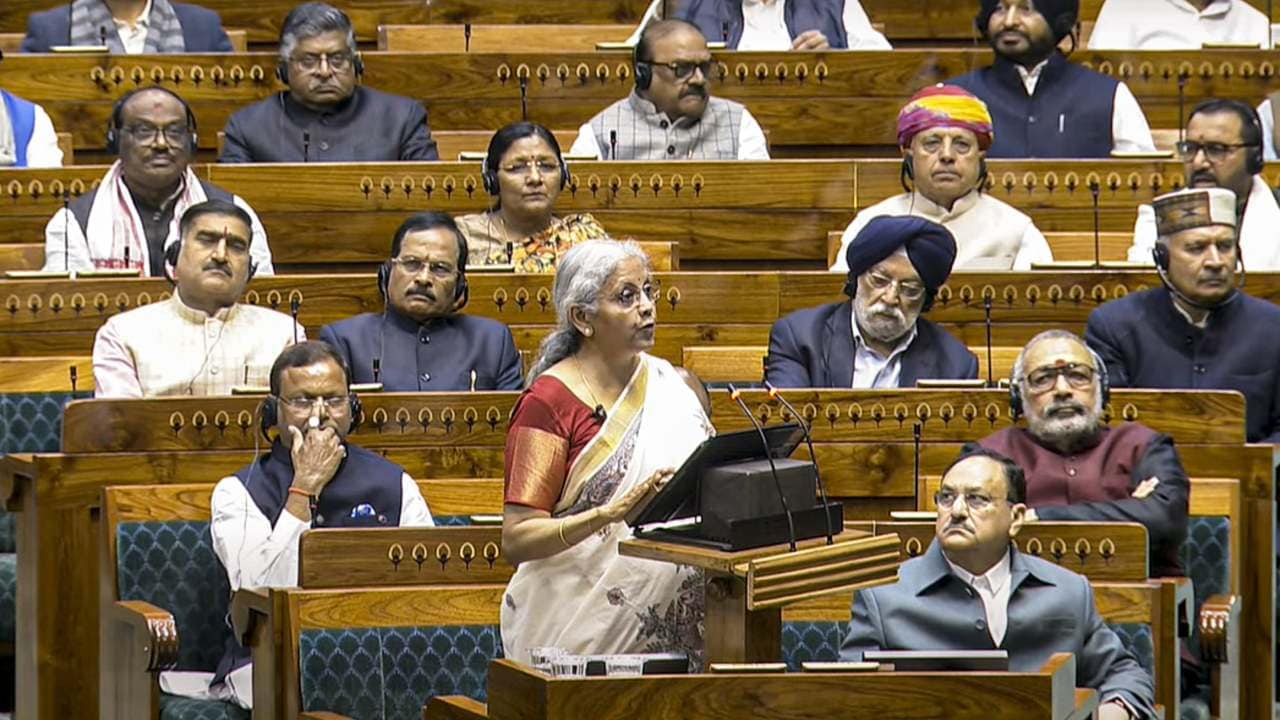
| Company | Value | Change | %Change |
|---|
“The bill could also bring in measures to help ease compliance for both the industry and the tax officers, and do away with some obsolete provisions, which are unnecessarily having overlapping impacts on several sections,” the sources added.
Sources have alluded that the new bill aims to bring in ease of compliance as new simplified rules will help reduce compliance processes by streamlining paperwork, integrating digital platforms, and simplifying return filing mechanisms.
“Given that there are a number of forms/returns which need to be filed by taxpayers, even they could be seen as getting reduced significantly. Several tax information could be built into the same form instead of the multiplicity of forms to be filed before the tax administration/officers. Also, there will be a focus on reducing litigation as the government aims to address contentious areas in the current law to reduce litigation.”
The government is set to introduce a new Income Tax Bill in Parliament, which, according to sources, is likely this week. This comes after Finance Minister Nirmala Sitharaman announced that the government will present the bill as part of her Union Budget 2025-26 speech.
New bill aims to replace Income Tax Act, 1961
The new Income Tax Bill aims to replace the existing Income Tax Act of 1961, to make the law simpler, more concise, and easier to interpret.
Experts have often called the current Income Tax Act of 1961 complex, cumbersome, and leading to a lot of litigations. The government has acknowledged the need for a new, simplified direct tax law, aiming to reduce ambiguities and curb litigation.
Meanwhile, reacting to the expectations from the upcoming bill, Dinesh Kanabar, CEO of Dhruva Advisors, believes that the industry and tax practitioners are “looking forward to not just a simplification of the law, easing the language by removing some obsolete terms, but some measures which can help in easing the litigation burden also. A speedier resolution of disputes without having to go through the rigmarole of the entire appeal process would be welcome. Some movement is expected to be on the penalties and prosecution provisions that exist in the law. Currently, there are overlaps and in many cases, prosecution has been prescribed, which can be reduced to bring in ease of doing business and can help decriminalise the law. For example, in the case of TDS, non-payment of TDS is prescribed for prosecution in the current law, but the government can consider avoiding prosecution where the delay is for a reasonable cause. Similarly, at a reasonable cost, compounding can be made simple. As of now, the cost under penalties is as high as the quantum of tax.”
Expectations from the new bill
Amit Maheshwari, Tax Partner at AKM Global, a tax and consulting firm, too stated that “Basis the budget speech of the Finance Minister and comments from ministry officials, it is likely that the new Income Tax Bill will not have substantial changes in tax rates and charging provisions. The new bill is more likely to make the law simpler so as to make it easy to understand, comply with, and reinforce certainty. Changes such as deletion of outdated sections, lack of cross-referencing of the Act and rules, and fewer numbers of provisos and clauses are highly expected. Further, the compliance and assessment procedures are expected to be technology-driven. Moreover, the penalty mechanism is also expected to be overhauled to make them exclusively for stringent defaults. Some of the fundamental changes, such as simplification of residential status provisions and finalisation of permanent establishment attribution rules, are also needed, but the mandate of the new tax bill is to simplify the law and not likely to drive these fundamental changes.”
Sandeep Bhalla, Partner at Dhruva Advisors, said that “Some of the expectations from the upcoming bill include—firstly, simplification as an ongoing process, as the new bill is expected to simplify existing tax laws, making them more concise and accessible for taxpayers. It is, however, important to mention that tax simplification should not be seen as a one-time effort but as a continuous process that evolves with changes in the economy, technology, and global practices on one hand, and the interpretation issues arising therefrom periodically. Secondly, the bill could have proactive stakeholder engagement, through which the Income Tax Department must actively seek feedback from taxpayers, industry players, and other stakeholders to identify controversial points and address them effectively. Regular dialogue ensures that the reforms remain relevant and practical. Thirdly, it could also have timely issuance of clarifications, considering that ambiguities in tax laws often lead to disputes and litigation, many times arising out of aggressive interpretation both from the tax administration and the taxpayers. The department should issue prompt clarifications and circulars to address concerns raised by stakeholders, fostering trust and transparency. At the same time, a more business-like approach for interpretation should be adopted by the administration. Also expected are technology-driven reforms, to encourage the integration of advanced technologies, such as artificial intelligence and data analytics, for better tax compliance and administration. This can help reduce human intervention, minimise errors, and enhance taxpayer convenience. The use of algorithms by the tax department for data analytics needs to be more robust.”
Bhalla also adds that the new bill could help create more predictability and stability. Since a simplified tax code should provide taxpayers with clarity on their liabilities and exemptions, “ensuring minimal frequent changes in provisions will allow businesses to plan their finances more effectively.”
In all, experts, chartered accountants and tax practitioners are looking for a clear and concise tax code that will provide certainty and reduce disputes. They also quip that by ensuring simplification remains dynamic and responsive, the government can create a tax ecosystem that is efficient, equitable, and taxpayer-friendly.



